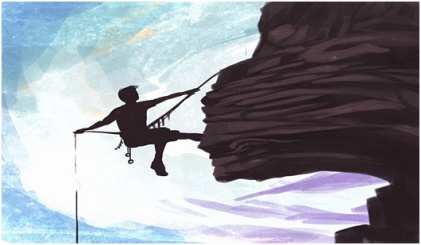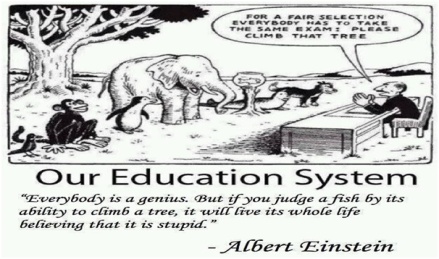REDEFINING ‘GHANAIANNESS’ – By Dzidedi Deku-Amegbor
Some things are better left unsaid. Others turn worse when left unsaid. Those things just have to be said…and done
We Ghanaians often pride ourselves as peace-loving, hospitable and democratised people with rights and responsibilities which unfortunately, we do not exercise fully for our own good. Though Ghanaians have very fine endearing attributes, those qualities seemingly deter us from exercising our rights and responsibilities. In other words, we fail to use the right quality to fulfill our rights and responsibilities for our individual good and for that of the nation. In this write-up, I explore the need to redefine our “Ghanianness” to include boldness.
The Confident Seven Year Old
I heaved a sigh of relief when a trotro heading to my destination finally came to our rescue, after waiting for an hour. Quickly, we settled down for the ride. As the trotro eased its way out of the station, everyone including the radio was quiet except for one person – a little girl at the back seat. She wouldn’t stop! That’s not the only thing that caught my attention. The other thing was this seven year old girl’s clear and almost perfect use of language. She went on and on about her day at school as well as the World Cup and the team she supported and those she thought will win or lose. One couldn’t help but conclude that she was bright, talkative and confident. Then there was her guardian, a young man, the only familiar person she knew who kept shouting, “shut up” at her. The order may have rather, spurred her on since she wouldn’t stop talking. Then it crossed my mind, maybe she didn’t care if her guardian was listening or not. That’s relentlessness. And UnGhanaian – a trait uncharacteristic of Ghanaians her age. Could she be a relentlessly confident seven year old Ghanaian? I smiled to myself. Not likely. So I listened more intently to pick from her accent, her nationality. Alas, she was but a Nigerian. And then, I wasn’t too surprised.
The Rainy Day Saga
It was a rainy morning that was certainly going to deny me my early morning ritual of enjoying kenkey and fish in that particular corner, somewhere in Accra. However, my present pressing headache was how to get to where I needed to get to in this rainy, messy, sodden atmosphere. Alas, the trotro I bordered was leaking badly just like many other trotros. The only place I could sit had a leaking roof so I had no choice but to perch there. So as I sat, I told the conductor/mate that I wasn’t going to pay the full fare. The bus moved. Other passengers began to complain about the leak in the roof but I kept my cool. When it was time to pay the fare, I handed out a neatly folded ₵1.00 note instead of ₵1.30p. The conductor began to protest but I silenced him with the argument that I was actually “hanging” on the seat and the ₵1.00 was even too generous as the actual fare is ₵1.10p though they dubiously charge ₵1.30p from passengers.
Some other passengers who were suffering, even more than I was, only made humour out of the situation and paid the full amount. It’s not too often we encounter and accept bold people, so we tend to either admire or hate and scorn the very few bold and different comrades we find amongst us.
In fact, one thing that left me a little awe-struck was a lady whose books were getting wet suggesting rather passionately to the conductor to allow me alight from the trotro. Obviously she had not gained any knowledge from the books she cared less for. Nonetheless, I got to my destination without having to add the difference.
What being Ghanaian has meant
Last year, at the TEDxEuston, Komla Dumour, one of Ghana’s illustrious sons gave a fantastic, humorous yet thought-provoking talk dubbed, Telling the African Story. Of everything that he talked about, one thing that has stayed with me after watching the video is he, being mistaken for a Nigerian. And it’s all because of his confidence! In fact, he narrated that when he told Ngozi Okonjo-Iweala, Nigeria’s finance minister, that he was Ghanaian, she exclaimed that, “Really? And you are so confident?” Clearly, Ghanaians are not known for their confidence/boldness.
I have had problems generally with the typical behavior of some Ghanaians. Ghanaians are just not bold and even when we are, we misapply that boldness. In the Rainy Day Saga, the passengers could only complain of their suffering. And it ended there.
Ghanaians have always been good at rhetoric. Oh and it is so easy to engage in rhetoric. Unfortunately, rhetoric never seems to solve any of our problems. Why won’t the corrupt politician capitalise on that and loot the state’s coffers? All we limit ourselves to when corruption is uncovered or when we have problems in our communities is to complain to each other or shout on the radio during call-in-segments about our suffering. The furthest we go is to insult and curse. And then there’s the pathetic blame game the two prominent political parties play, blaming one another for committing similar offences. But do those solve the problems?
You see, if every passenger who sits under a leaky roof in any trotro in Ghana decides not to pay the full amount, the driver will run at a loss and he will begin to reason to change. We must insist on getting value for the hard earned money we pay to service providers; from the trotro conductor and driver to the President, in this era of very harsh economic realities. We always complain about the poor customer service we ‘enjoy’ in this country yet we never insist, through bold actions, on getting value for our monies. We have ourselves to blame when our leaders take us for granted because we don’t take them on. We only vote for them in blissful ignorance after getting a few cedis.
At the just ended World Cup, Ghanaians in a glorious, graceful pea-cocking in shame, decided to fly a lot of dollars (the mention of the actual amount usually gives me a headache) to Brazil to appease the Black Stars who were demanding for their appearance fee. Again, this is another example of misapplication of boldness. What stopped the team and GFA officials from in a sensibly bold and assertive way; carve out an agreement as to when and how they will be paid? They were bold enough to demand for it in Brazil but were not sensibly bold to agree to a workable compromise prior to the commencement of the game. Being bold doesn’t mean you should just rebel. It’s about being assertive in a sensible, reasonable way. No one will take you for granted if you are being reasonably bold.
What Ghanaians have done with humour
There’s absolutely nothing bad about being humorous. After all, in Ghana we get through all the suffering and tensions by being humorous and making jokes about our problems. However, there is a danger in always resorting to that. As we continuously hide behind humour, we never get to deal with the realities practically for our own good. Since we are not a bold people, we have resorted to being a humorous people. Laughing off your problems will only help ease up the pain or pressure; however humour alone doesn’t solve problems.
The New Generation: Breaking away from the Status Quo
The attitude of Ghanaians being so polite when maltreated, partially stems from our culture of not questioning adults. In a proper Ghanaian society, a child has no right to question, challenge or stand up to an adult who is even oppressing him/her. That’s why I listened more intently to the seven year old to ascertain whether she was actually Ghanaian. Though the trend is changing, a greater percentage of the Ghanaian youth still silently suffer. In our schools, how many pupils are eager to engage in heated, robust, mind-stimulating intellectual arguments with their tutors? Only a few of them will. Even with those who will, how far do they go? After the tutor counters them, they relent and withdraw from the argument. I don’t blame them because when the students are relentless in challenging the opinion of the teacher who is usually older, the tutor may see this as an act of disrespect, a challenge of authority as well as an insult.
Why should we accept all we are told as gospel? Why don’t we change the way we learn from the “chew and pour” practice to applying critical thinking? A Ghanaian child is taught to give yes/no answers to questions and give explanations only when allowed to; to listen to the teacher and make as little noise as possible in class. So we grow up like that. It is usually when we get to the university that we actually see the bold ones or we learn to be bold. It is also an avenue that allows us to challenge ourselves to think on our feet. You see, unfortunately, we view intelligence too much as only an ingrained quality. But is writing exams the only means of determining whether one is intelligent or not? Do we consider the conditions under which these exams are written? Do those conditions allow the individual to fully and effectively use his/ her mental faculties? Surely, these public speaking exercises have their own peculiar conditions but what if those ones work better for an individual?
Being bold means you are different, independent-minded and assertive. It also indicates that you are not blissfully ignorant. Let’s insist on our rights. Let’s own our thoughts. Let’s change the status quo. Let’s be reasonably bold.
Makramo
By Dzidedi Deku-Amegbor



I must admit, u keep blowing my mind with ur thought provoking pieces…I guess its abt tym we strtd addn actions to our words.. keep it up bae.
Thought provoking Write up…May we be bold in Actions and not just in words.
Such a great piece. Think its far time we stand up for our rights and make our leaders account for their actions. Thumbs up miss dzidede.
This piece is mind blowing Its high time we add action to our thoughts and words.This is the truth nobody wanna talk about……. we got to start being bold.Congratulations on this beautiful piece.
its time we the youth rise up n stop this lackadaisical attitude of ours. nice piece dear.
Another classic Aphua…Good piece…Ghana, we still have a way to go
LOVE this piece…looking forward to read more …KEEP IT UP BOO
Thank you very much folks.